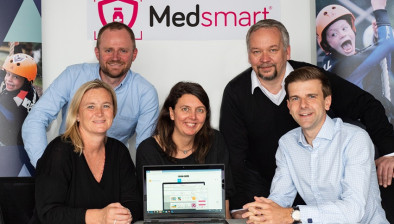SIS Group champions economic recovery as lending returns to pre-pandemic levels

Pictured: The Wasps Trust supported by SIS to deliver sustainable building upgrades for Inverness Creative Academy (credit: Martin Shields)
Responsible finance provider SIS Group has seen a return to ‘business-as-usual’ as resilience funding decreased and demand for other funds reached near pre-pandemic levels, as detailed in its latest annual report.
During the financial year ending 31 March 2023, the group, encompassing Social Investment Scotland and SIS Ventures, approved new loans of £11.7 million and drew loans amounting to £16.1m, indicating a positive response to its post-pandemic ‘Turning up the Volume’ strategic action plan.
The year also saw the launch of two new funds – the Community Sustainability Fund aimed at helping individuals and communities most impacted by the cost-of-living crisis, and the Social Enterprise Just Transition Fund, targeting social enterprises the North-East of Scotland and Moray.
SIS also continued to oversee, and fund manage the Scottish Investment Fund (on behalf of the Scottish Government), Asda Community Capital Fund, Third Sector Resilience Fund and the Affordable Credit Fund (on behalf of the Carnegie UK Trust and the Scottish Government).
Market building activity accelerated in partnership with organisations including the Scottish Government, Creative Scotland, People’s Postcode Lottery, Just Enterprise, and Zero Waste Scotland.
Activity included ‘Circular Economy 360’, a programme of workshops delivered with Zero Waste Scotland to help organisations develop strategies around Net Zero and Circular Economy practices; the ‘Assist’ programme of workshops, in partnership with the Scottish Government, supporting investment readiness in earlier stage social enterprises; and Retail for Change, in partnership with Scottish Government, supporting ambitious social enterprises by linking them up with potential supply deals.
Key achievements for the financial year include:
- £11.7m new loans approved and £16.1m of new loans drawn.
- £1.4m of loans from SIS Community Finance, with an increased demand by social enterprises to revisit their growth aspirations.
- £1.3m of new investments from the Scottish Social Growth Fund (SSGF), including investment from the Scottish Government, Big Society Capital (BSC) and the University of Edinburgh.
- £7.9m from the Community Investment Enterprise Facility (CIEF), backed by BSC, which makes investments in social enterprise lenders who provide financial support to small and medium sized enterprises in disadvantaged communities.
- £3.7m from the Recovery and Resilience Fund (RRF).
- £890k from the Net Zero Transition Fund (NZT).
- A further £1.3m of equity investment from SIS Ventures, supporting high-growth and high-impact potential, mission-led businesses.
SIS will be releasing its annual Impact Report later this month, highlighting the positive difference it has made to customers and communities across Scotland and the UK over the past year.
Alastair Davis
Alastair Davis, CEO of SIS Group, said: “We are as determined as ever to deliver our mission to connect capital with communities, to make a real measurable and sustainable impact upon people’s lives.
“Social enterprises and community organisations are pivotal to so many in their communities. We see this daily and understand the importance we play in helping support this tremendous impact.
“However, many of our customers still face significant external challenges including, most pertinently, the cost-of-living crisis.
“Support from SIS and our partners remains absolutely vital to helping our customers not just survive but thrive and deliver more benefits to those who are most in need.”
Ken Barclay, chair of SIS Group, said: “In line with our aim of ‘turning up the volume’, SIS has delivered a more rapid deployment of credit, substantially enhanced and additional market building programmes and a number of new funds for our customers.
“As the Scottish Government presses ahead with its vision of transitioning to a wellbeing economy, Scotland’s social enterprises are well placed to play a key role.
“However they can only do so if they continue to receive the investment, support and recognition required to deliver for their communities and for Scotland.”










